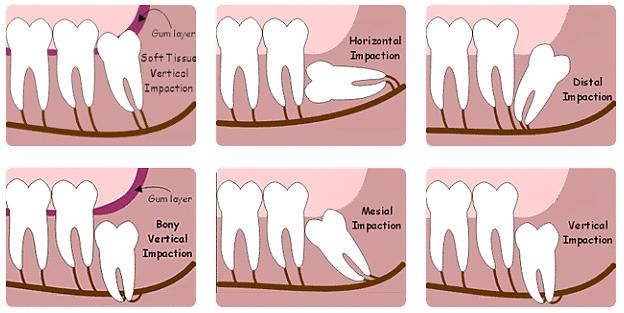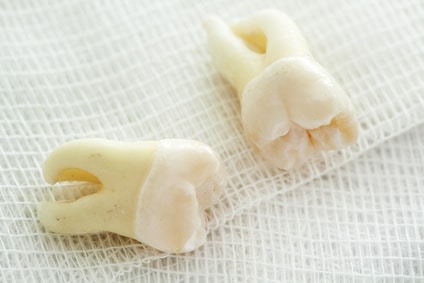Checking Out Various Sedation Options for a Comfy Knowledge Teeth Removal Experience
The use of sedation during such procedures has come to be significantly common to reduce anxiousness and discomfort. With an array of sedation options available, from local anesthesia to basic anesthesia, each technique supplies varying levels of relaxation and pain control.
Regional Anesthesia
Local anesthetic is a generally used technique for numbing certain locations of the mouth during wisdom teeth removal procedures. By administering a neighborhood anesthetic, such as lidocaine, a dental expert can make certain that the patient stays comfy and pain-free throughout the removal process.
Among the main advantages of regional anesthetic is its targeted numbing impact, which suggests that only the certain area being treated is influenced. This local strategy lessens the threat of systemic side impacts and enables a quicker healing post-procedure. In addition, regional anesthetic is considered to be a safe and regular practice in dentistry, with marginal risks entailed when carried out by a skilled specialist.
Laughing Gas
Nitrous oxide, generally understood as laughing gas, is a type of sedation frequently made use of in dentistry to help people kick back throughout dental treatments. This sedation alternative enables the person to stay receptive and aware throughout the treatment while really feeling at ease and comfortable.
When the mask is eliminated, the impacts of the gas use off quickly, allowing clients to resume their typical activities without remaining sedative impacts. Nitrous oxide is appropriate for people of all ages, making it a versatile sedation alternative for knowledge teeth removals and other oral treatments.
Oral Sedation
Dental sedation, a medicinal method used in dentistry, includes the administration of sedative medicines by mouth to generate a kicked back state throughout dental treatments. The medicines prescribed for dental sedation belong to a class of drugs called benzodiazepines, which have sedative, anxiolytic, and amnesic residential or commercial properties.
Among the key benefits of dental sedation is its convenience of management. Unlike intravenous sedation, dental sedation does not need shots or needles, making it a much more comfortable alternative for individuals with a fear of needles. Furthermore, dental sedation is considered safe and reliable when carried out by skilled oral professionals. It is critical for clients to comply with pre-operative directions provided by their dentist, such as abstaining from consuming or consuming before the procedure to make certain the sedative drug functions as intended.
IV Sedation
Administered intravenously by skilled physician, IV sedation is an effective method made use of to generate a regulated state of deep relaxation and unfamiliarity throughout oral treatments. Unlike oral sedation, which can be uncertain in its effects, IV sedation allows for specific control over the degree of sedation, making it an optimal selection for complex procedures like knowledge teeth extractions.
During IV sedation, a sedative medicine is supplied straight right into the bloodstream through a blood vessel, allowing it to work swiftly and effectively. This approach makes certain that the individual continues to be not aware and comfortable of the treatment while still preserving essential functions such as breathing and heart rate.
One of the main advantages of IV sedation is its capacity to provide a much deeper level of sedation contrasted to other methods, making it particularly suitable for patients with high levels of anxiousness or those going through useful site considerable dental work (wisdom teeth removal aspendale). Additionally, the effects of IV sedation normally put on off progressively after the treatment, reducing the possibility of grogginess or lingering negative effects. On the whole, IV sedation provides a effective and secure choice for making sure a comfy and hassle-free experience throughout knowledge teeth removal

General Anesthetic
Having actually reviewed the advantages of IV sedation for knowledge teeth extraction, the usage of basic anesthetic offers an alternative option for people needing a deeper level of unfamiliarity during dental check my reference treatments. General anesthetic causes a controlled state of unconsciousness, guaranteeing the person feels no discomfort or pain throughout the extraction process. This method is particularly valuable for individuals with severe dental anxiety, complicated surgical requirements, or those undertaking several removals simultaneously.
General anesthesia is provided by a qualified anesthesiologist who closely keeps track of the person's essential indications throughout the treatment. It involves using intravenous medicines or inhaled gases to induce a state of unfamiliarity. While under basic anesthesia, the individual will certainly not understand the surgical treatment, experience any type of discomfort, or have any kind of recollection of the treatment later.
Although general anesthesia is risk-free when administered by certified professionals, it lugs a slightly greater threat compared to other sedation options - wisdom teeth removal aspendale. People thinking about basic anesthetic for knowledge teeth extraction must talk about the potential risks and benefits with their dental professional or oral doctor to make a notified decision based upon their private requirements and case history

Verdict
In verdict, numerous sedation options are readily available to make certain a comfy knowledge teeth removal experience. Oral sedation and IV sedation deal deeper degrees of leisure, depending on the person's requirements.
Nitrous oxide is appropriate for people of all ages, making it a flexible sedation alternative for knowledge teeth removals and various other oral procedures.
